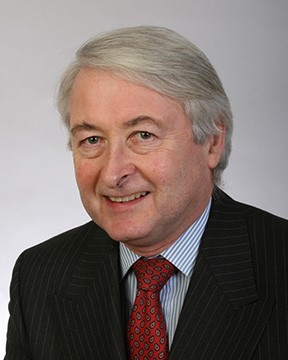Sir Vivian Ramsey studied Engineering Science and Economics at Oxford University before working as a civil engineer in the UK and overseas. During this time he became a Chartered Engineer and is now a Fellow of the Institution of Civil Engineers. He was also elected as a Fellow of the Royal Academy of Engineering in 2013.
After studying law in London he was called to the Bar (Middle Temple) in 1979 and was a practising barrister in Keating Chambers from 1981 to 2005, being head of chambers from 2003 to 2005. He became a Queen’s Counsel in 1992 and practised around the world as an advocate, arbitrator, adjudicator and mediator in technical disputes, particularly related to construction and engineering projects. He acted for governments, public authorities, utilities, international contracting companies, consultancies, architects, engineers and other construction professionals. In 2002 he was elected as a Bencher of Middle Temple.
He appeared in the High Court, Court of Appeal and House of Lords as well as overseas courts and was called to the Bar in Hong Kong, Singapore, Brunei and Trinidad for particular cases in those jurisdictions. He acted as counsel in numerous domestic and international arbitrations. He was also appointed as chairman, co-arbitrator or sole arbitrator in ICC, LCIA, ICDR, UNCITRAL, Swedish Chamber of Commerce, Japanese Commercial Arbitration Association and other institutional or ad-hoc arbitrations. He was also appointed as a mediator and an adjudicator as well as being an expert appointed by the ICC President and a member of Dispute Boards.
In 2003 he chaired the PNE Committee established under section P6 of the Balancing and Settlement Code to determine a wide range of notification disputes under the NETA trading arrangements in the UK Electricity Industry.
From 2005 to 2014 he was a High Court Judge in the Queen’s Bench Division and from 2007 to 2010 served as judge in charge of the Technology and Construction Court in London. He was appointed judge in charge of the court estate in 2011 and in April 2012 he became judge in charge of the implementation of the reforms arising out of Sir Rupert Jackson’s Final Report on the Review of Civil Litigation Costs. He also chaired the Judicial Advisory Group on IT for the judiciary.
Following his retirement as a High Court judge in November 2014, he continues to act as a judge on a part-time basis and is involved in the continuing implementation of the Jackson Reforms and in developing IT systems for the courts and the judiciary. Besides pursuing a number of interests outside the law, he is currently acting as arbitrator in a number of cases in London and overseas as well as acting as mediator and expert. He is also a member of a Unidroit working group on long term contracts. In January 2015 he was sworn in as one of the International Judges in the new Singapore International Commercial Court where he will hear cases started in that court or transferred from the Singapore High Court.
He is the current joint editor of Keating on Building Contracts which is a standard text in the UK and Common Law countries. He produced the 7th Edition in 2000, the 8th Edition in 2006 and the 9th Edition in 2011. He was a founding editor of Construction Law Journal and continues as a Consultant Editor. He has edited or contributed to or is a member of the editorial board of a number of other publications.
He is a member of the Advisory Board or the Association for Consultancy and Engineering and a Court Assistant of the Worshipful Company of Constructors. In 2010 he received the President’s Medal from the Society of Construction Law and the Clare Edwards Award from the Technology and Construction Solicitors Association. He is an honorary Fellow of the American College of Construction Lawyers and President of the International Academy of Construction Lawyers.
He is also an Honorary Professor in the Department of Civil Engineering at the University of Nottingham and a Visiting Professor at the Dickson Poon School of Law at King’s College, London. He lectures worldwide on construction and commercial law and procedure.


